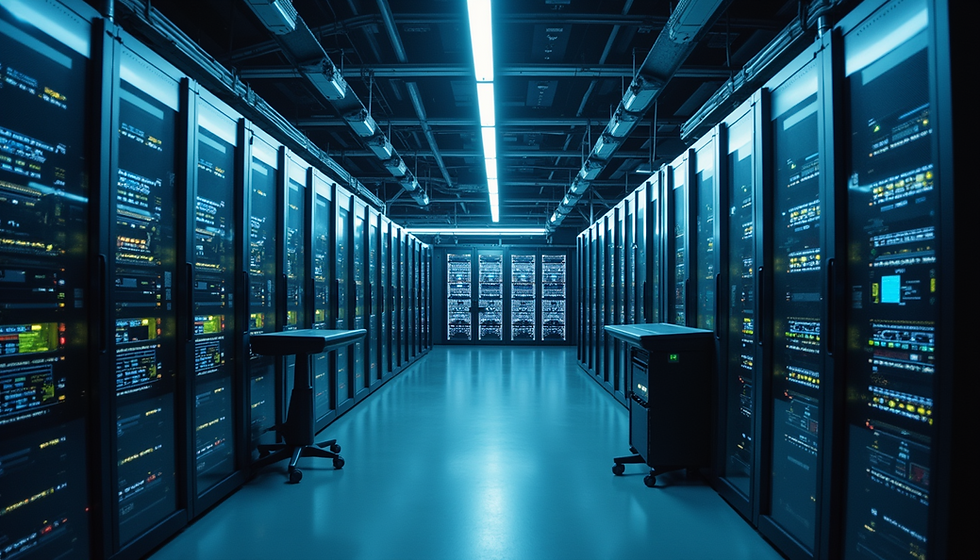AI Breakthroughs: Latest News and Updates
- subrata sarkar
- Aug 12, 2025
- 4 min read
Artificial Intelligence (AI) is transforming our world at an astonishing pace. From healthcare to finance, AI is making significant strides that impact our daily lives. In this blog post, we will explore the latest breakthroughs in AI, highlighting key developments, applications, and what they mean for the future.
The Rise of Generative AI
Generative AI has taken the tech world by storm. This technology can create new content, from text to images, based on the data it has been trained on. One of the most notable examples is OpenAI's ChatGPT, which can generate human-like text responses.
Applications in Creative Fields
Generative AI is not just for tech enthusiasts. Artists, writers, and musicians are using it to enhance their creativity. For instance, AI tools can help writers brainstorm ideas or generate entire stories. Musicians can use AI to compose new melodies or even create entire songs.
Case Study: DALL-E
OpenAI's DALL-E is a prime example of generative AI in action. This model can create images from textual descriptions. For example, if you input "a two-headed flamingo wearing a top hat," DALL-E will generate a unique image based on that description. This capability opens up new avenues for artists and designers, allowing them to visualize concepts that were previously difficult to illustrate.
AI in Healthcare
AI is making waves in the healthcare sector, improving diagnostics and patient care. Machine learning algorithms can analyze medical data faster and more accurately than humans.
Early Detection of Diseases
One of the most significant breakthroughs is in the early detection of diseases. AI systems can analyze medical images, such as X-rays and MRIs, to identify conditions like cancer at an early stage. For example, Google's DeepMind has developed an AI that can detect breast cancer more accurately than human radiologists.
Personalized Medicine
AI is also paving the way for personalized medicine. By analyzing a patient's genetic information, AI can help doctors tailor treatments to individual needs. This approach can lead to better outcomes and fewer side effects.
AI in Finance
The finance industry is another area where AI is making a significant impact. From fraud detection to algorithmic trading, AI is changing how financial institutions operate.
Fraud Detection
AI algorithms can analyze transaction patterns to identify fraudulent activities. For instance, if a credit card is used in a location that the owner has never visited, the AI can flag this transaction for review. This capability helps protect consumers and financial institutions from losses.
Algorithmic Trading
In trading, AI can analyze vast amounts of data in real time, making split-second decisions that humans cannot match. This technology has led to more efficient markets and increased profitability for trading firms.
AI and Autonomous Vehicles
The development of autonomous vehicles is one of the most exciting applications of AI. Companies like Tesla and Waymo are at the forefront of this technology, aiming to create self-driving cars that can navigate safely without human intervention.
Safety Improvements
AI systems in autonomous vehicles use sensors and cameras to understand their surroundings. This technology can significantly reduce accidents caused by human error. For example, Tesla's Autopilot feature can assist drivers by maintaining speed, changing lanes, and even parking.
Regulatory Challenges
Despite the advancements, there are still regulatory challenges to overcome. Governments are working to create guidelines that ensure the safety of autonomous vehicles on public roads. As these regulations evolve, we can expect to see more self-driving cars on the streets.
AI in Education
AI is also transforming education, making learning more personalized and accessible.
Personalized Learning
AI can analyze a student's learning style and adapt educational content accordingly. For example, platforms like Khan Academy use AI to provide personalized recommendations based on a student's progress. This approach helps students learn at their own pace and improves overall engagement.
Administrative Efficiency
In addition to enhancing learning, AI can streamline administrative tasks for educators. AI systems can automate grading, manage schedules, and even assist in student enrollment processes. This efficiency allows teachers to focus more on teaching and less on paperwork.
Ethical Considerations in AI
As AI continues to advance, ethical considerations become increasingly important. Issues such as data privacy, bias, and job displacement are at the forefront of discussions about AI's future.
Data Privacy
With AI systems collecting vast amounts of data, ensuring privacy is crucial. Companies must implement robust data protection measures to safeguard user information. Transparency in how data is used is also essential to build trust with consumers.
Addressing Bias
AI systems can inadvertently perpetuate bias if they are trained on biased data. It is vital for developers to recognize and address these biases to create fair and equitable AI solutions. Ongoing research is needed to ensure that AI benefits everyone, regardless of background.
The Future of AI
Looking ahead, the future of AI is bright. As technology continues to evolve, we can expect even more innovative applications that will change our lives for the better.
Collaboration Between Humans and AI
Rather than replacing humans, AI is likely to enhance our capabilities. For example, in fields like medicine and engineering, AI can assist professionals in making better decisions. This collaboration can lead to improved outcomes and increased efficiency.
Continuous Learning
AI systems will continue to learn and adapt over time. As they process more data, their accuracy and effectiveness will improve. This continuous learning will drive innovation and open new possibilities across various industries.
Final Thoughts
AI breakthroughs are reshaping our world in exciting ways. From healthcare to finance, the impact of AI is profound and far-reaching. As we embrace these advancements, it is essential to consider the ethical implications and ensure that AI serves the greater good.
The journey of AI is just beginning, and the possibilities are endless. As we look to the future, we can be hopeful about the positive changes AI will bring to our lives.




Comments